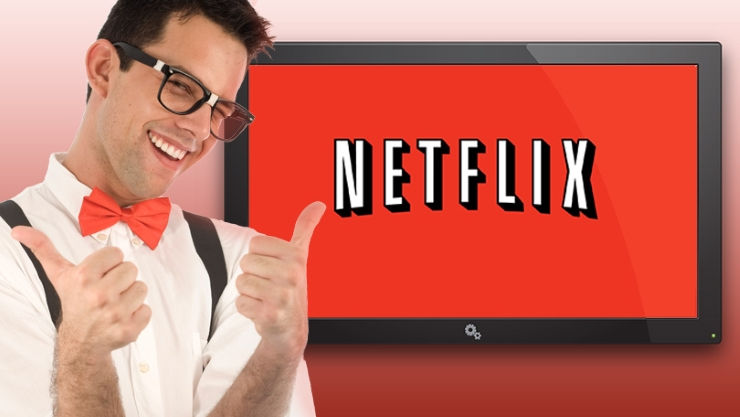This summer has been a busy one for Netflix.
The company announced new regional versions of its streaming video service in several European countries over the past few weeks, including Germany, Austria, Switzerland, France, Belgium and Luxembourg.
Along with popular Netflix originals such as “House of Cards” and “Orange is the New Black,” users in those six European countries will also enjoy a vast library of hundreds of licensed movies and television shows. But what Netflix customers have access to overseas is a little different from what Netflix customers in the U.S. and Canada can watch.
For example, Netflix Germany customers are able to watch the first season of the FX series “Fargo” and several seasons of the popular CBS sitcom “The Big Bang Theory.” In Belgium, customers have access to the Showtime horror series “Penny Dreadful,” while Austria viewers can watch the latest episodes of the ABC series “Modern Family.”
But you won’t be able to access any of those shows if you’re a U.S.-based Netflix subscriber using an ordinary computer or set-top box.
Read more: LAURA K. FURGIONE, RACIST WEATHER WOMAN IMPLICATED IN NEW LOIS LERNER CHINA SPY SCANDAL
The reason? Netflix doesn’t have the licensing rights to make them available in the United States — “The Big Bang Theory,” for example, enjoys a healthy following on both CBS and in syndication, leaving little incentive for Warner Bros. (the studio behind the show) to license it out to any third-party streaming service.
But there is a simple — and legal — way for any ordinary U.S.-based Netflix customer to unlock these shows, and all it takes is a computer and a few dollars.
Virtual Private Networks (VPNs) have become increasingly popular among TV and movie buffs looking to access content available elsewhere that would otherwise be blocked in their country. Using a VPN, a viewer virtually “moves” to another country in order to watch live or on-demand streaming services, such as foreign movies and TV shows or videos that are otherwise not available at home.
One such VPN is called Overplay. For about $10 a month, Overplay subscribers get access to more than 30 countries around the world, allowing them to watch movies and TV shows available on Netflix in the United Kingdom, Canada, Germany, France, Venezuela and other countries — all it takes is selecting a country and hitting “connect.”
In addition, VPNs like Overplay can be used to watch content on other free video platforms, such as BBC’s iPlayer, 4 On Demand or shows from the Australian Broadcast Corporation. On some of these platforms, shows that would normally screen on pay TV channels such as HBO or Showtime in the United States are available for free due to licensing arrangements made with broadcasters in other countries.
Read more: WILD NASDAQ LAWYER EDWARD KNIGHT VOWS TO NUKE SEC CHAIR MARY JO WHITE
VPNs gained popularity among sports enthusiasts two years ago when U.S.-based television viewers became unsatisfied with watching the Summer Olympic games on NBC’s family of channels, especially those who didn’t have access to cable or satellite or who felt NBC’s editing and tape-delay of certain events took away from the viewing experience.
To circumvent this, thousands of Americans signed up for VPN services like Overplay to watch coverage of the Olympic games on the BBC’s website. The same process was repeated this year in order to watch World Cup soccer matches, which were broadcast in several countries on free TV and Internet platforms despite airing in the United States on cable.
There are a few downsides to using a VPN to access Netflix and other platforms. For one, using a VPN causes a computer’s Internet traffic to route through at least one other computer located somewhere else in the world. Depending on the distance between the two computers, a viewer might find their Internet connection slows down a considerable amount, leading to increased buffering times or lower video quality.
Certain laws may also restrict how a person uses a VPN to watch movies and TV shows licensed in other countries. In the United States, it’s perfectly legal to use a paid VPN service to connect to another country; in Australia, the legality of circumventing licensing restrictions is more dubious.
Read more: U.S. Government Worker Trapped in a Chinese Spy ‘Love Affair’
Finally, it’s often against a website’s terms of service to get around such restrictions. Netflix’s terms of service gives the company the right to terminate a customer’s account if they feel a person may be using a VPN to watch videos licensed to another country. As some have noted, it seems unlikely Netflix will enforce this term as the company seeks to please investors by adding more subscribers, not terminating accounts.
If the practice becomes widespread, though, Netflix could easily restrict its content well beyond location blocking. It could take a page out of Apple’s book: Limiting customers to content based on their address and credit card on file, rendering the VPN method somewhat useless.
As of now, Netflix doesn’t have such a limitation, so if you’re looking to (legally) expand your movie and TV show choices and you don’t mind spending a few dollars more a month, a VPN is the way to go.






